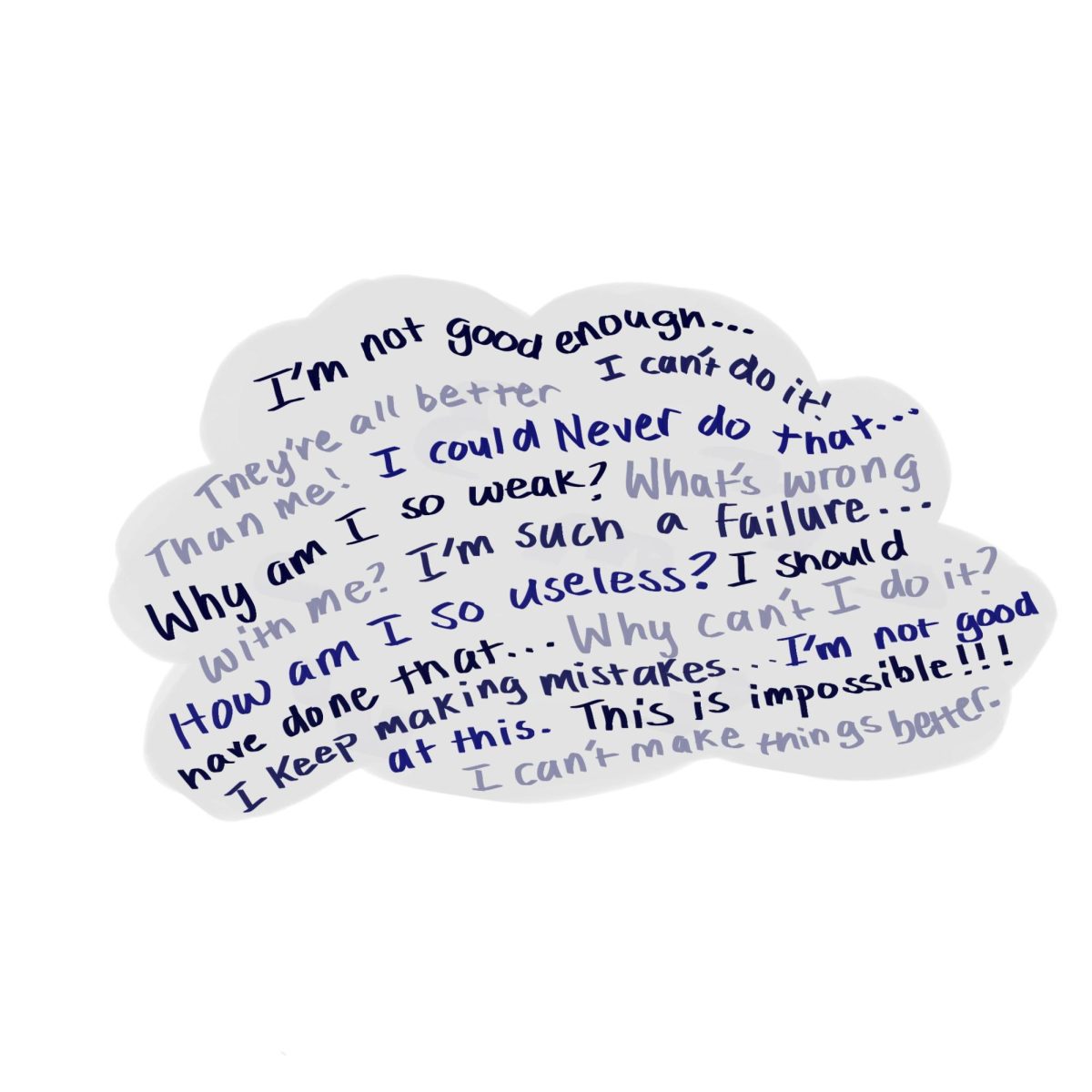With an average 60,000 thoughts running through the mind every day, it’s easy to see where negative self talk can pop up. Sometimes it’s a fleeting thought, lost the moment the next one comes up. Other times just one thought can ruin the entire day.
Negative self talk can appear in a lot of different ways. Personalizing is a common one, where someone blames themselves for everything that goes wrong. Filtering is another, in which the bad outweighs the good in any situation. If you got an A on a test but are obsessing over the two questions you got wrong, chances are you’re dealing with filtering. A similar one is polarizing, where there’s nothing in between bad and good, or perfect and feeling like a failure.
All of these kinds of self-talk can have detrimental effects in the long run. Speaking too negatively to yourself tends to harm anyone’s mental health, but especially so for those with anxiety or depression. In addition to worsening pre-existing conditions, it’s also been linked to increasing stress and decreasing self esteem.
There’s also the added issue of the seemingly endless cycle of negative self talk. Quinn Born, ‘26, explains that “once you start thinking bad about yourself, it’s hard to stop.” Part of it is that when you talk down to yourself, saying things like “I can’t do it,” you limit yourself and your opportunities. In turn, this lowers your chances of success, which only worsens a negative mindset. Additionally, the feelings that come from criticizing yourself–for example, Natalie Ashline, ‘24, brings up “feeling like a failure”–only causes more self doubt.
Besides the consequences of negative self talk, the gain from positive self talk should not be understated. Not only does it lower risk from some mental illnesses, such as depression, but it improves stress management, self esteem, and body image. Even without changing anything else, being nicer to yourself will make you feel more in control of your own life.
Despite the nasty spiral people may find themselves in, there are still plenty of ways to improve their mindset and be nicer to themselves. The first step is recognizing when you’re being unfairly critical of yourself. Peggy Hilbrands, a MHS psychologist, says a good way to challenge negative thinking is to think about the “golden rule,” or treating others the way you would want to be treated, “but reversed.” When you find yourself being too hard on yourself, Hilbrands says to ask “would I say that to my best friend?” Chances are, the answer is no, so then you have to ask yourself, “then why am I saying this to myself?”
After recognizing negative self talk, it’s time to work towards getting rid of it. This can include meditation, talking it out with someone else, or working positive affirmations into daily life. It looks different for everyone, but in every case one of the most important steps is choosing to be kinder to yourself.


























